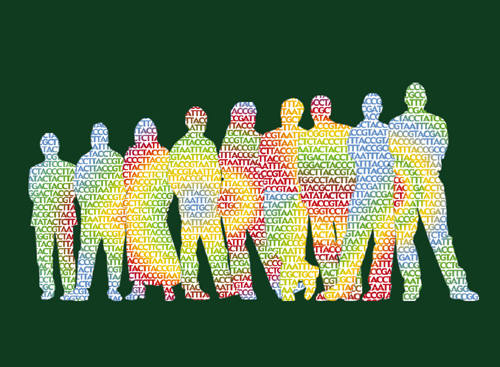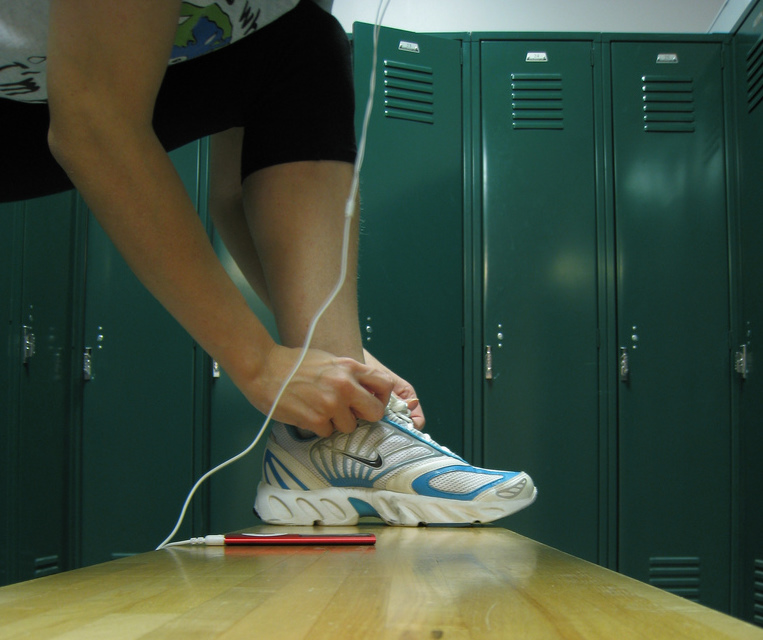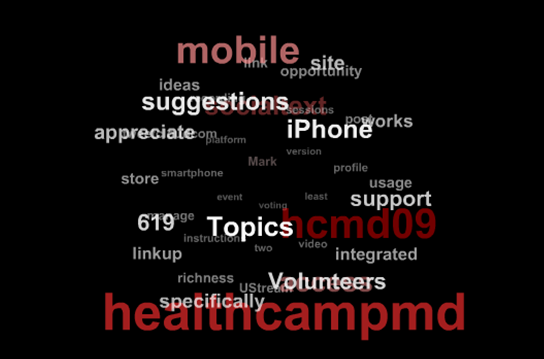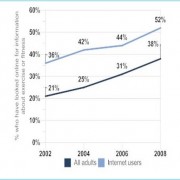Self-Tracking Data: HealthCampDC Perspective

How do you know what’s normal? How do you win? How do you know when to stop?
These were just a few of the wonderful, offbeat questions that popped up during a session on self-tracking I facilitated at HealthCampDC 2011.
Bring together a group of thought leaders with wide-ranging expertise. Let them debate and question the concept of self-tracking. Suddenly data and tracking take on entirely new identities.
HealthCampDC was one event of many during DC Health Innovation Week. Our discussion on self-tracking highlighted the theme of the week: how do we better utilize data to weave together stories to improve health outcomes?
Issues:
- People are lazy. Tracking systems need to be simple and intuitive.
- Diseases and conditions aren’t siloed. Tracking systems for them shouldn’t be, either.
- Community, sharing, friends, competition – these are all very important components of self-tracking.
- Community, sharing, friends, competition – there are times when these are detrimental in tracking communities and encourage negative health outcomes. Example given: anorexics who compete to see who can eat the least amount each day.
- Tracking sensors are rather worthless if they aren’t reliable and accurate.
- The Quantified Self is important, but so is the Qualified Self. Self-tracking data are not just numbers. Data can also be in the form of images and sound.
- A great example of a successful (trusted, confidential) self-tracking community? Alcoholics Anonymous.
- For many individuals who self-track, privacy is key, and sharing is the last thing they want to do. Example given: people who are HIV positive.
- Self-tracking is not ‘one size fits all.’
- Just the act of tracking is valuable. Putting down a number or taking a photo raises awareness, which is a key step in behavior change.
Questions:
- How can SMS be better utilized for self-tracking in underserved communities?
- What are the barriers to tracking?
- How do you better incentivize or incorporate motivators into tracking devices?
- Under what conditions would it be helpful to have a tracking ‘trajectory’ to illustrate the path you’re on (good or bad)?
- How do you make tracking data actionable?
- How do you cross the self-tracking chasm from ‘work’ to ‘fun’?
Self-tracking session gurus included Marilyn Langfeld (@MarilynsView), Alan Viars (@aviars), Gregg Masters (@2healthguru), Sandra Paredes, Andrew Rainey (@breadforthecity), Greg Bloom (@breadforthecity), Richard Layman, Rebecca Frank (@frankrebecca), Andre Blackman (@mindofandre), Dave Haft (@davehaft), Eden Shiferaw (Community Education Group), Mark Scrimshire (@ekivemark), Stephen Murphy (@IQSolutions), Joe Lyons (Lyons Advisors, LLC), Baabi Das (Zansors, LLC), Jessica Sachs, Peter Speyer (@PeterSpeyer), Lindsey Hoggle (@lindseybh), Lanny Hartmann (@Lanny). Apologies to anyone I missed – let me know and I’ll add you.
What do you view as key issues and questions in the realm of self-tracking?
Thanks to Kaiser Permanente Center for Total Health for hosting the event in their stunning new space.
DC Health Innovation Week Events (Twitter tag: #dchealth):
- The Walking Gallery #Thewalkinggallery
- HealthCa.mp/dc #hcdc
- The Health Data Initiative #healthapps
- Health Innovation Summit #futurehealth
- Health 2.0 Code-a-Thon #health2dev
- DC Health Innovation Week Proclamation (pdf)
Great posts by others on Health Innovation Week events:
- “Walkers” keep on walkin’, Talkers get to talkin’ and Mover’s & Shakers- yep, you guessed it- Get to Movin’ and Shakin’!, Matthew Browning, Your Nurse Is On
- 8 key takeaways from health data-palooza, Peter Speyer, Data Development
- #HealthApps insightful @TimOReilly hits the spot, again. This time on Privacy and how it relates to the Rainbow button initiative. #hcdc, Mark Scrimshire, HealthCa.mp
- Human being trumps human doing : DC Health Innovation Week recap, Ted Eytan, M.D.
- The Health Data Initiative Forum, Brain Ahier, Healthcare, Technology & Government 2.0
- Health Digital Check-Up: Washington, DC Health Innovation Week, David Barton, Edelman Digital
- 5 Things That Caught My Attention at the Health Data Initiative Forum, Chris Hall, SoHealth
- How a Health 2.0 code-a-thon works, Andy Oram, O’Reilly Radar
- A New Hope? (…but what about that pesky death star?), Mike Painter, Pioneering Ideas
Related posts










Very interesting post Carol! Health Start ups are popping up everywhere these days and a lot of them are essentially Tracking Systems. Having had met with a bunch of different companies in this space one of the first questions I ask is, ‘what is your device’s margin of error?’ Some of the companies unfortunately do not have an answer for me. This is very disheartening because tracking is such an opportunity for the industry and ripe for disruption. These founders are passionate people but they are missing the essential need of accuracy. It goes hand in hand with your issue of diseases and conditions not being siloed. There is no one size fits all in an age where people are living longer with multiple chronic diseases. Accuracy is essential because a few percentage points makes a huge difference in the life of a high risk patient balancing multiple chronic diseases.
-John
@John_Szczech
John,
Thank you so much for stressing the importance of accuracy. When I did research on sensors for a recent talk, recurring themes among scientists were sensor sensitivity, specificity, range, response time, reproducibility, and clinical relevance. (Which, as you point out, underlies another key issue of simultaneously tracking multiple chronic conditions.)